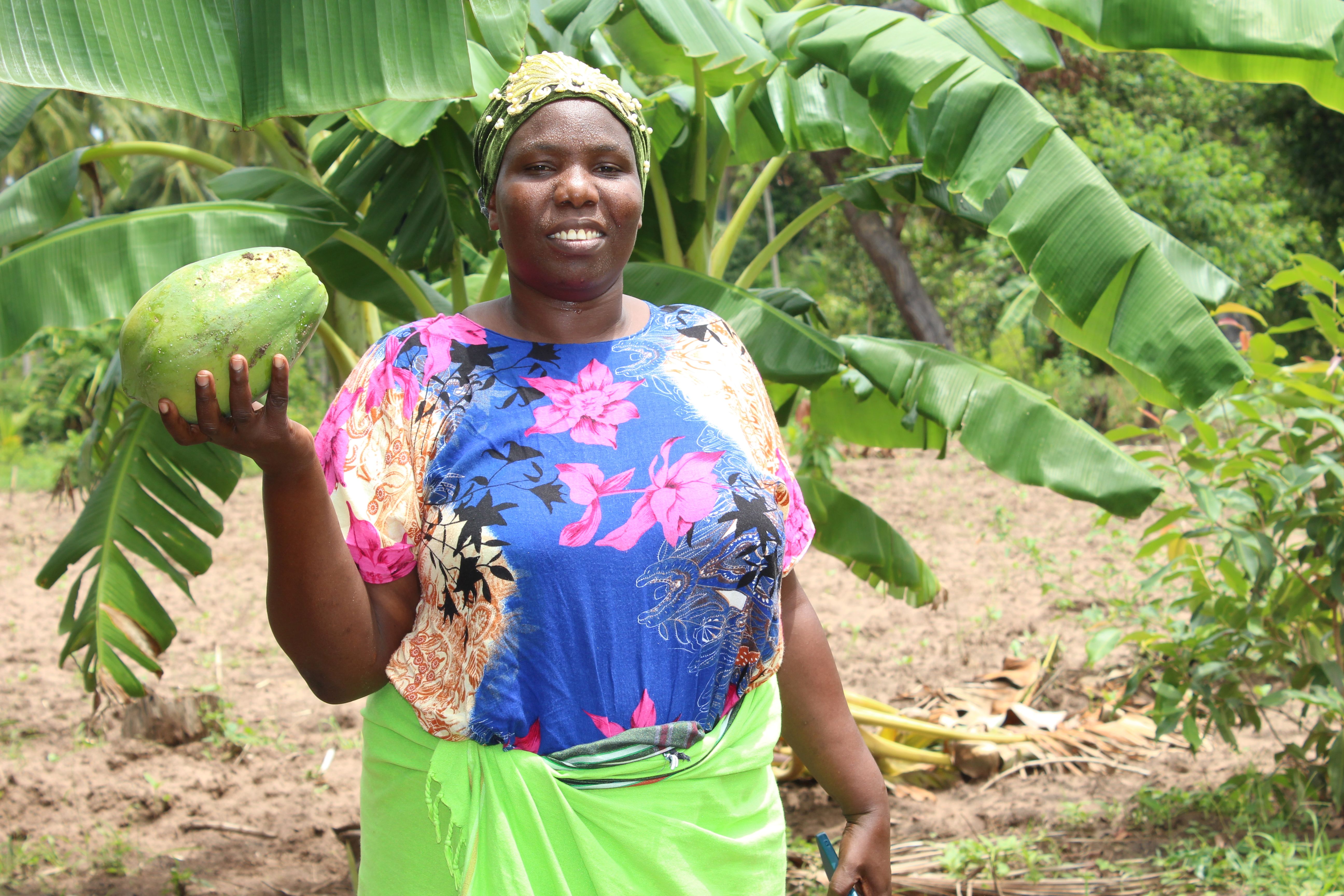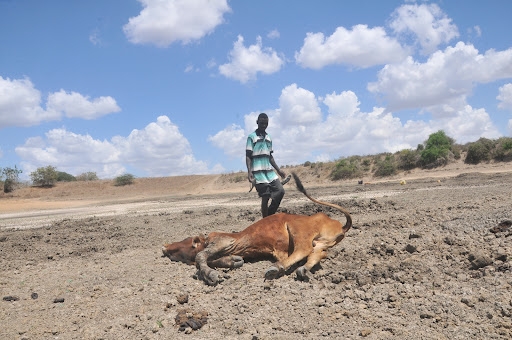

Esther Rukia, 39, cannot hide her joy as she narrates her story, a typical rags-to-riches one, which she, herself, still finds hard to believe.
For years, she lived in a small, dilapidated, mud, makuti-thatched house in Barcelona, a small village in Msamwbeni subcounty, Kwale county, where owning a bicycle qualifies you to be a tycoon.
She worked as a casual labourer, seeking odd jobs like washing clothes to earn a living, using the little money she gets, mostly less than Sh600 whenever she was lucky, to feed her four children and pay the Sh2,000 rent for the roof over their heads.
The only fortune-in-waiting was that she lived in an area where there were minerals, and Base Titanium, operator of Kenya’s largest mining project from 2013-24, had earmarked it for exploration of ore reserves.
She is among more than 1,000 households identified and incorporated into the Base Titanium Relocation Programme.
Once struggling to make ends meet, she is now among the many beneficiaries whose lives have been transformed, and in the process transformed the face of Kwale county.
"I was once fighting for survival, but now I am in dreamland,” she says with a smile.
The relocation programme has not only given her a safe and comfortable place to live in but also opened doors to new opportunities, allowing her to build a brighter future for her family.
Today, Rukia is a proud owner of several modern houses, a farm and livestock, which have become a steady source of income, boosting her livelihood and that of her children.
MORE TESTIMONIES
Rachael Nyamawi, 45, who relocated from Mwaloya to Kinondo, is also proof of the life-changing impact of Base Titanium’s relocation programme.
Despite her previous life challenges and living without a job, going from door to door seeking any job to do, she now owns a one-acre piece of land, where she has built four houses.
She has another parcel, 3.5 acres, in Mwandimu, a half-an-acre in Masindeni and 10 acres in Mwapala for future investments.
But perhaps her most remarkable achievement is owning a car, something she never imagined in her lifetime.
“Driving was never in my dreams. But thanks to this programme, I got the opportunity to improve my life and achieve what once felt impossible,” she says.
She described the relocation programme as God-sent, as it turned her life around in ways she never imagined.
Before the compensation, she had little to be proud of, but today, she stands tall as a homeowner, landowner and most remarkably for her, a car owner.
In addition to her land and houses, Nyamawi now owns more than 28 cows, with the number growing.
She has also established a thriving wood workshop that brings in a steady income every day.
Martin Kioko shares a similar success story.
Relocated from Barcelona to Shimba Hills, his life has taken a remarkable turn.
Before the relocation, he owned just three acres of underdeveloped land and relied on unproductive farming.
However, since receiving compensation, Kioko has expanded his land ownership by purchasing five more acres along with additional plots in Nguluku and Masindeni.
Currently, he is not only a landowner but also a successful entrepreneur.
He owns several rental houses in Kwale, providing him with a reliable income, and a lorry that he rents out for transport services.
Previously, Kioko depended solely on woodwork, which generated minimal earnings.
Now, with multiple income streams, money flows in from various business ventures.
And at 40 years old, he also boasts a herd of 10 cows, supplying him with fresh milk and meat for sale, further boosting his financial stability.
“The relocation programme changed everything for me. I never thought I would reach this level, but today, I am building a future I once only dreamed of,” he says.
POVERTY TO WEALTH
Joseph Muli, a retired teacher, was relocated from Mafisini to Majoreni in Lunga-Lunga subcounty, and his life has never been the same.
Reflecting on his journey, he admits that the wealth he has accumulated through the relocation programme is something his teaching career could never have afforded him.
“For all the years I spent in the classroom, the best I could achieve was constructing a mud house with an iron sheet roof,” he recalls.
Muli dedicated 37 years of his life to teaching, yet it was only after retiring in 2021 that he was able to build his first permanent house.
Today, Muli stands as a proud land owner, with 20 acres to his name. He previously had 4.75 acres.
On this vast property, he has built more than five houses, each strategically positioned across his estate.
He recalls the challenges he faced before relocation, living on a slanted piece of land in Mafisini, where farming was nearly impossible due to frequent invasions by baboons and buffaloes coming from Buda forest.
Today, his story is different.
Settled in Majoreni, Muli is actively engaged in both crop and poultry farming, which has become a major source of income.
He grows bananas, maize, vegetables, mangoes, coconuts and pineapples, all thriving on his expansive 20-acre farm.
Muli has also ventured into business, running a posho mill and a guest house, further boosting his income.
“My financial status has improved significantly, and I am finally enjoying the fruits of relocation,” he says.
He also proudly shares that he was able to build houses for all his children, giving them a stable and secure future.
Muli further highlights the improved access to clean water, healthcare and other essential social amenities, things that were once out of reach in his previous life.
FACES OF CHANGE
The four are part of a bigger group that are the face of silent transformation taking place in Kwale county, one that has rewritten the future for families once displaced by mining activities.
What began as a challenge turned into an opportunity thanks to Base Titanium’s well-structured resettlement programme.
It was no longer just about moving people from one place to another. The programme has given families modern homes, access to clean water, quality education and improved livelihoods.
Once clouded by hardship and uncertainty, the people of Kwale are now embracing a future filled with hope and opportunity.
From gloomy faces marked by severe poverty to ever-smiling faces radiating confidence and success, the transformation is remarkable.
Those who once had nothing now run multiple thriving businesses, empowered by improved infrastructure, better housing and access to essential services.
The programme did not only provide a fresh start but also ignited a wave of economic growth and self-sufficiency.
Some residents were unknown people but they have suddenly been thrown into the limelight.
Kassim Manga is one such example.
In Bumamani village, near Base Titanium factory, his wealth and success have become the talk of the town.
Before the relocation, Manga was relatively unknown, struggling to provide for his three wives and 15 children.
With the compensation he received, he built modern houses for his three wives and 15 children, ensuring that each wife and child had a home of their own.
This was in stark contrast to their previous life in traditional mud and makuti-thatched houses.
Determined to secure a better future for his family, Manga also invested in his sons by buying motorbikes for them to start boda boda business.
Today, his sons are thriving entrepreneurs, multiplying their wealth and contributing to the family’s growing prosperity.
Manga has also ventured into livestock farming, which has become a major source of income.
"I once had only three cows, but now I have more than 12, providing my family with fresh milk daily and extra for sale," he proudly shares.
Now, with financial stability and all his needs within reach, Manga is a happy and proud man, grateful for the opportunities the relocation programme has brought him and his family.
LIVES CHANGED
Base Titanium social engagement manager Christine Mwaka says the relocation programme was guided by the Kenya Mining Act 2016.
It was also informed by the International Finance Corporation (IFC) Performance Standard Number Five on Involuntary Resettlement, she says.
Mwaka, who is in charge of settlement and compensation programmes, says they have relocated more than 1,000 households since the mining company started mining a decade ago in Kwale.
The Australian firm spent slightly above Sh3.5 billion for the last three resettlement programs, which includes Mafisini in 2021, Kwale North and Bumamani in 2022 and Vumbu households in 2024.
The resettlement was done following a positive exploration outcome confirming existence of viable minerals to be mined in the area.
Mwaka says their goals have been to ensure resettled households' livelihoods become better than they were before the relocation.
“We have seen that most of those resettled by Base Titanium have shown great improvement in their livelihoods and investment and they are living a better life than they were before,” she says.
















